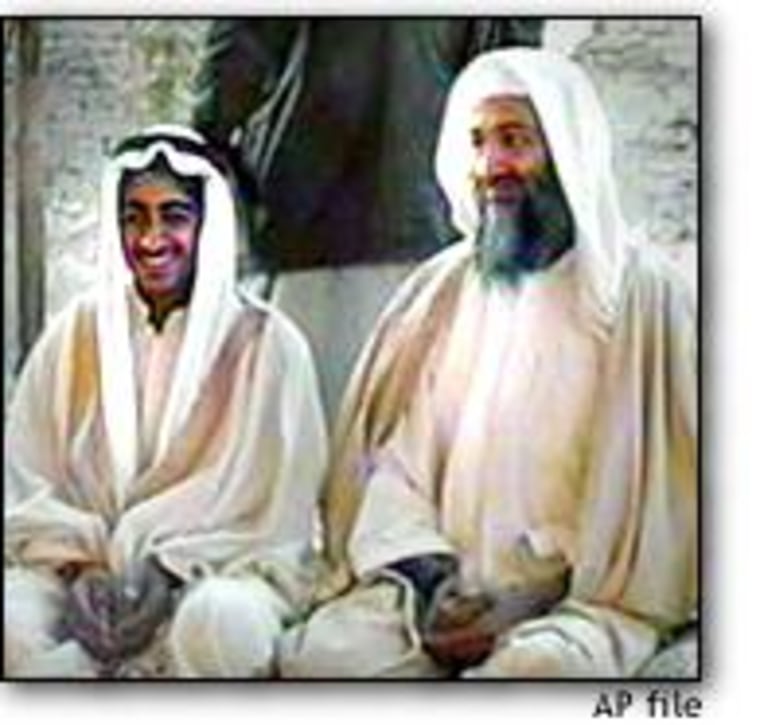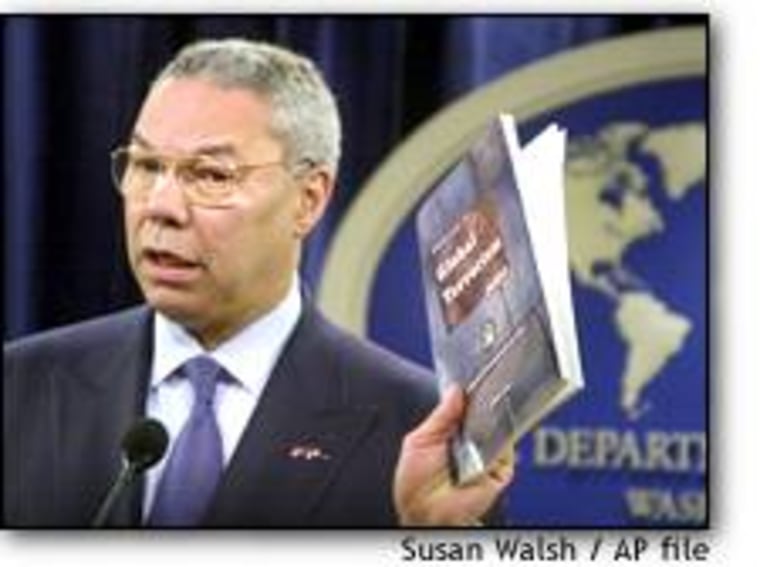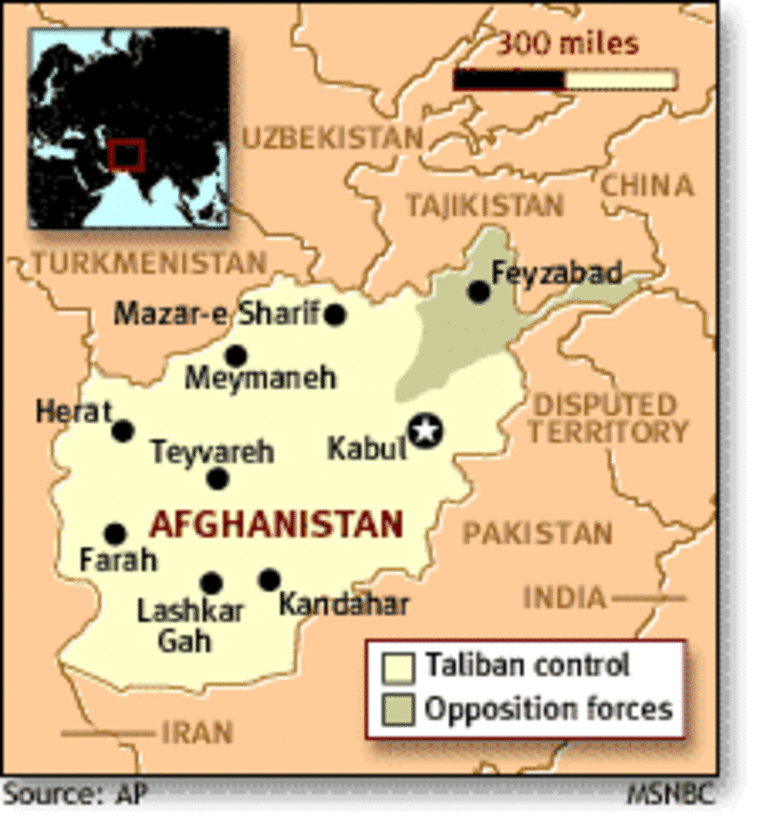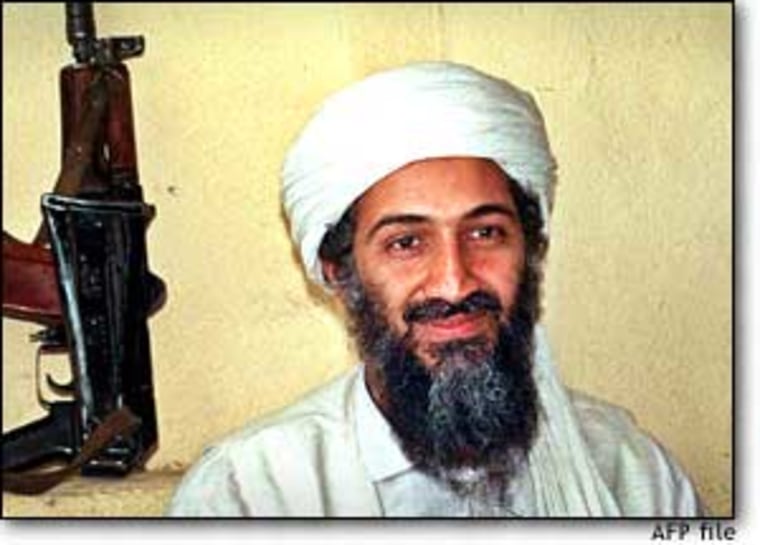Outside this dust-choked Taliban stronghold, sometimes called home by Osama bin Laden, exists a network of safe houses from which America’s most-wanted man allegedly masterminds attacks against U.S. interests. Having failed to bring bin Laden to justice through missile strikes and sanctions against Afghanistan’s government, Washington is now quietly playing down the Saudi exile’s image as America’s leading enemy, realizing, perhaps too late, that it has created a living martyr for millions of anti-Western Muslim militants.
With his name linked to a growing number of global terror plots, bin Laden sought refuge in Afghanistan in 1996 and was welcomed by the ruling Taliban Islamic militia as a hero of the anti-Soviet resistance of the 1980s.
Those with intimate knowledge of bin Laden today say he has settled in nicely.
Giving up the trappings of wealth
Although a multimillionaire from a family inheritance, he long ago gave up the creature comforts of a wealthy Arab to dedicate himself to his cause.
“Bin Laden is very happy living among his fighters. He is one of them. He is very relaxed and normal,” said one Afghan source familiar with bin Laden’s habits.
Places like Kandahar, one of Afghanistan’s biggest cities, offer bin Laden the anonymity and the supplies he needs to keep a low profile. Perched on a trade route between Pakistan to the south and former Soviet republics to the north, shops in Kandahar’s maze-like back alleys are stocked with smuggled goods.
U.S. intelligence has expended huge amounts of resources trying to track America’s most wanted man, but bin Laden remains elusive.
U.S. loses scent
U.S. intelligence officials say they have a better idea of bin Laden’s whereabouts than they did at the time of the 1998 Africa embassy bombings he allegedly masterminded. But even now that four men have been convicted and two could face the death penalty for carrying out those bombings, officials say they still cannot pinpoint bin Laden’s smallest movements. “We may know what town he is in, but we don’t know where in the town,” an intelligence official said.
Shortly after arriving in Afghanistan five years ago, bin Laden caught wind of a purported CIA plot to apprehend him using operatives based in neighboring Pakistan. According to Afghan sources, that’s when bin Laden beefed up his security entourage and moved to safe houses deep inside Afghanistan — and out of reach of international law enforcement.
The 44-year-old bin Laden now moves frequently from house to house, protected by a heavily armed security contingent and 4X4 vehicles with dark windows.
Sources say America’s top fugitive does most of his traveling at night, because the Taliban has told him and his inner circle of lieutenants to keep a low profile among Afghanistan’s impoverished populace.
Permission to operate freely
“Bin Laden is rarely seen, because the Taliban wants it that way,” said one Afghan source who fought with bin Laden during his days with the anti-Soviet Mujahideen. “But he’s pretty much able to do what he wants.”

That freedom to operate has stymied Washington, especially since bin Laden, aware that his satellite phone calls can be intercepted, employs a clever combination of 19th and 20th century means of communication to carry out orders. According to U.S. intelligence sources, bin Laden enlists “Pony Express” couriers to carry encrypted floppy disks filled with data, which are passed on to other couriers from target nations. Once in the hands of the target nation’s cell, a disk is de-encrypted.
The Saudi exile was most recently seen in January, reading poetry at his son’s wedding in Kandahar.
U.S. officials are so frustrated by the lack of intelligence on bin Laden that they say they were even happy to hear the Taliban mistakenly complain last year about the possible presence of U.S. special forces inside Afghanistan.
U.S. troops have trained for a bin Laden “snatch-and-grab” mission, officials say, but Washington has not put troops on the ground in Afghanistan. “Let them think we did, however,” said one official.
Rethinking bin Laden
Bin Laden’s skill in eluding U.S. intelligence has the United States rethinking its approach to its No. 1 enemy. Now that Washington realizes bin Laden thrives in isolation and that its well publicized efforts to bring him to justice have created a hero for many in the Muslim world, Bush administration officials and intelligence sources say the government has begun playing down the Saudi expatriate’s alleged role in terrorism.

The newly released annual report “Patterns of Global Terrorism,” prepared by the State Department and the CIA, talks about the role of a network of “Afghan Alumni” — the former U.S.-backed resistance to the 1979 Soviet invasion — rather than attributing all anti-American violence to one person.
In a passage pertaining to the October 2000 suicide bombing of the USS Cole in Yemen, and the August 1998 embassy bombings in Kenya and Tanzania — two events in which Washington has publicly implicated bin Laden — no reference is made to the Saudi millionaire.
New strategy may be too late
But Washington’s strategy to take the spotlight off bin Laden may have come to late.
Today, in Afghan refugee camps in Pakistan, a popular child’s name is Osama. Many local businesses, trying to capitalize on his fame, use “Osama” in their names.

The U.S. policy of vilifying bin Laden also has hurt diplomatic and humanitarian efforts in Afghanistan. Relief and other officials even have a name for it: “the OBL factor.”
“Osama bin Laden hangs like a dark cloud over Afghanistan,” said Yusuf Hassan, head of operations in South and Central Asia for the United Nations High Commission for Refugees.
Washington’s “all-Osama-all-the-time” approach has also strained diplomatic relations with some allies in the region, particularly Pakistan, which is one of the few countries that recognizes the Taliban government.
One high-ranking diplomat in Kabul, speaking on condition of anonymity, told MSNBC.com that Washington has taken “a short-sighted approach” to an explosive region that needs long-term solutions.
“The United States needs to be engaged, but all it has is a very vague policy,” the diplomat said.
Greater U.S. presence in the region
There are signs, however, that Washington is increasing its level of engagement in the region. The National Security Agency has started advertising for Uzbek linguists to add to its stable of speakers of Pashto, the dominant dialect in Afghanistan, and Arabic, bin Laden’s native language.
The United States also sponsors CENTRALASBAT, or Central Asian Peacekeeping Battalion exercises, which have involved hundreds of paratroopers from the United States, Uzbekistan, Kazakhstan, Kyrgyzstan and Turkey jumping from helicopters and low-flying planes in the former Soviet republics bordering Afghanistan.
U.S. still hot on bin Laden's trail
The military has also flown its top-of-the-line C-17 transporter non-stop from the United States to Central Asia — a record length for a transport aircraft — to demonstrate to Central Asian governments just how quickly Washington could respond in the event of a crisis.
Despite Washington’s toned-down approach to bin Laden, officials said they are still trying to track his every move.
“He is still desperate to initiate an attack in the United States,” said one official, “and he is still desperate to use weapons of mass destruction — chemical, biological or radiological — in his attacks.”
Preston Mendenhall is MSNBC.com’s International Editor. Robert Windrem is an investigative producer for NBC News.
